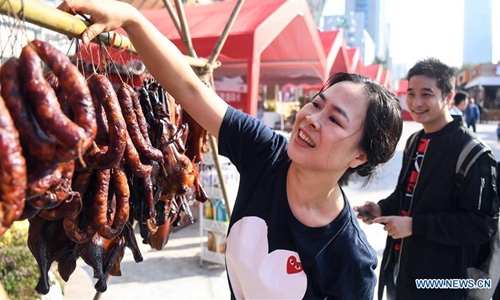The purchasing managers’ index (PMI) for China’s manufacturing sector stood at 50 in January, slightly down from 50.2 in December, the National Bureau of Statistics (NBS) said Friday.
A reading above 50 indicates expansion, while a reading below reflects contraction.
The decline partly resulted from a slowdown in production growth due to the Lunar New Year holiday that reduced industrial activities, as the sub-index for production, though remaining in the expansion zone, lost 1.9 points to 51.3 in January month on month.
Also because of the holiday break, up to 17.6 percent of the surveyed enterprises have complained about insufficient labor supply, 2.1 percentage points higher than a month ago, said NBS senior statistician Zhao Qinghe.
But Zhao noted that it would require further observations to tell future developments as the PMI surveys were carried out before Jan. 20 when the impact of the novel coronavirus (2019-nCoV) outbreak on production activities had yet to unfold.
Market demand for the manufacturing sector has continued to see faster expansion, as the sub-index for new orders rose 0.2 points to 51.4 in January, NBS data showed.
In January, the PMI for high-tech manufacturing, equipment manufacturing and consumer goods all stayed above 50, showing accelerated industrial transformation and upgrades, according to Zhao.
Friday’s data also showed China’s January composite PMI dropped marginally to 53 from 53.4 in December, indicating slower expansion in the overall production of China’s companies.
An exhibitor displays meat products during a tourism and New Year shopping festival in Nanning, capital of south China’s Guangxi Zhuang Autonomous Region, Jan. 4, 2020. The festival is held in Nanning from Jan. 4 to 19. Photo:Xinhua


